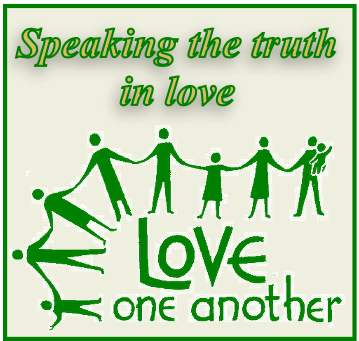Readings: Ezekiel 33:7-9; Romans 13:8-10; Matthew 18:15-20
Theme: Speaking the truth in love
Today’s gospel and first reading are at odds with the commonly held view that we should mind our own business, and let other people mind theirs; we are only responsible for our own behaviour. It is, of course, true that each of us is responsible for his or her own behaviour. But the Scripture readings today remind us that we have a responsibility for others, one that may, at times, include correction.
The words of Jesus in the Gospel reading are clear and unambiguous: ‘If your brother does something wrong, go and have it out with him alone, between your two selves’ (Mt 18:15). It is important to note the context in which Jesus is speaking. He is instructing his disciples as a community called to proclaim and witness to God’s reign on earth, on how they should behave towards one another. He encourages them to challenge and help one another to live fully Christian lives, lives of integrity and loving service in accordance with God’s reign of justice and love. So, when they see that a member of the community is not living in accordance with their Christian calling, they should not speak of that person’s failings behind his back – which is what we all tend to do. Rather, they should go directly to the person in question and try to put him on the right path. And they should correct that person with love, not with self-righteous anger – which will most likely have the opposite effect to the one intended.
We have a notable example of successful fraternal correction in St Paul’s Letter to the Galatians, where Paul tells us how he confronted and corrected Peter over an issue that was at the core of the identity of the early Church, namely the acceptance of gentiles into the Christian community. While Peter has at first embraced the inclusion of gentiles, later, due to pressure from his fellow Jewish Christians, he stopped eating with gentiles (cf. Gal 2:11-21). We know that this confrontation did not break the unity of the early Church nor rupture the bonds of love and respect between Peter and Paul, because it was a correction given in love. And, as St Paul reminds us in the second reading today, ‘love is the one thing that cannot hurt your neighbour’. Indeed, if we do not love the persons we wish to challenge or correct, then we had best not try to correct them at all.
Nelson Mandela, in his autobiography, Long Road to Freedom (1994), recounts a more recent example of how fraternal correction should be done, and of its transformative effects. This incident took place during Mandela’s years as a prisoner in Robben Island. One day, he was called to the main office to meet the army general who was visiting the island. The general wanted to know from Mandela if the prisoners had any complaints. The officer in command of the prison, Badenhorst, was also present. He was feared and hated by the prisoners and most of their complaints were about his harsh treatment of them. Courageously, but without bitterness or recrimination, Mandela informed the visiting general of the prisoners’ chief complaints. The general noted what he had to say, which amounted to a damning indictment of Badenhorst’s regime. The following day Badenhorst went to Mandela and said ‘I’m leaving Robben Island. I just want to wish you people good luck’. This response left Mandela dumbfounded. Later he said, ‘I was amazed. He spoke these words like a human being, and showed a side of himself I had never seen before. I thanked him for his good wishes, and wished him luck in his own endeavours.’
In Western society today we tend to think of correcting an erring brother or sister as inappropriate for a liberal and tolerant society. We have an exaggerated sense of our personal autonomy and independence of one another. We forget that we are all interdependent and that our lives are inextricably bound up with one another. This truth is captured in a single African word, ‘ubuntu’, which means ‘I am because we are’, and in the beautiful expression of St Paul that we all form ‘one body’. For good or ill, our lives impact on one another. In the words of the poet Alfred Lord Tennyson, ‘Our echoes roll from soul to soul, And grow forever and forever’. If we believe this, we are obliged to help one another to grow together to be the best that we can be as a Christian community of witnesses to the reign of God.
Often what inhibits us from speaking the truth in love to a brother or sister is our fear of rejection and conflict. We don’t want to take the risk of endangering our relationship with those we love. But a relationship built on the avoidance of all conflict rather than on truth is on a very shaky foundation indeed. There is a healthy conflict that leads to growth just as there is an unhealthy peace that is really another word for indifference. So, instead of tolerating all sorts of unchristian and destructive behaviour, today’s gospel challenges us to correct one another in love and with respect, so that the entire Christian community, all members of the Church of Christ, may glorify the wonder and the beauty of God who has made each one of us in his image and who calls us to live as his children.
Michael McCabe SMA
To listen to an alternative Homily for this Sunday, from Fr Tom Casey of the SMA Media Centre, Ndola, Zambia please click on the play button below.
|
|

